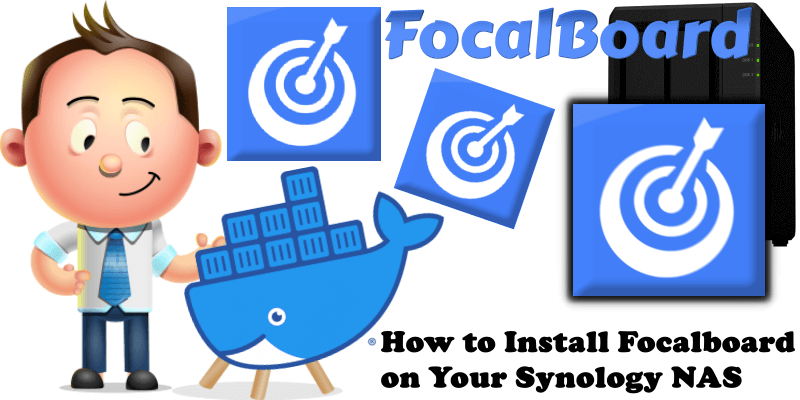
Focalboard is an open source, self-hosted alternative to Trello, Notion, and Asana. It’s a project management tool that helps define, organize, track and manage work across teams, using a familiar kanban board view. In this step by step guide I will show you how to install Focalboard on your Synology NAS using Docker & Portainer.
STEP 1
Please Support My work by Making a Donation.
STEP 2
Install Portainer using my step by step guide. If you already have Portainer installed on your Synology NAS, skip this STEP. Attention: Make sure you have installed the latest Portainer version.
STEP 3
Make sure you have a synology.me Wildcard Certificate. Follow my guide to get a Wildcard Certificate. If you already have a synology.me Wildcard certificate, skip this STEP.
STEP 4
Go to Control Panel / Login Portal / Advanced Tab / click Reverse Proxy. Follow the instructions in the image below.
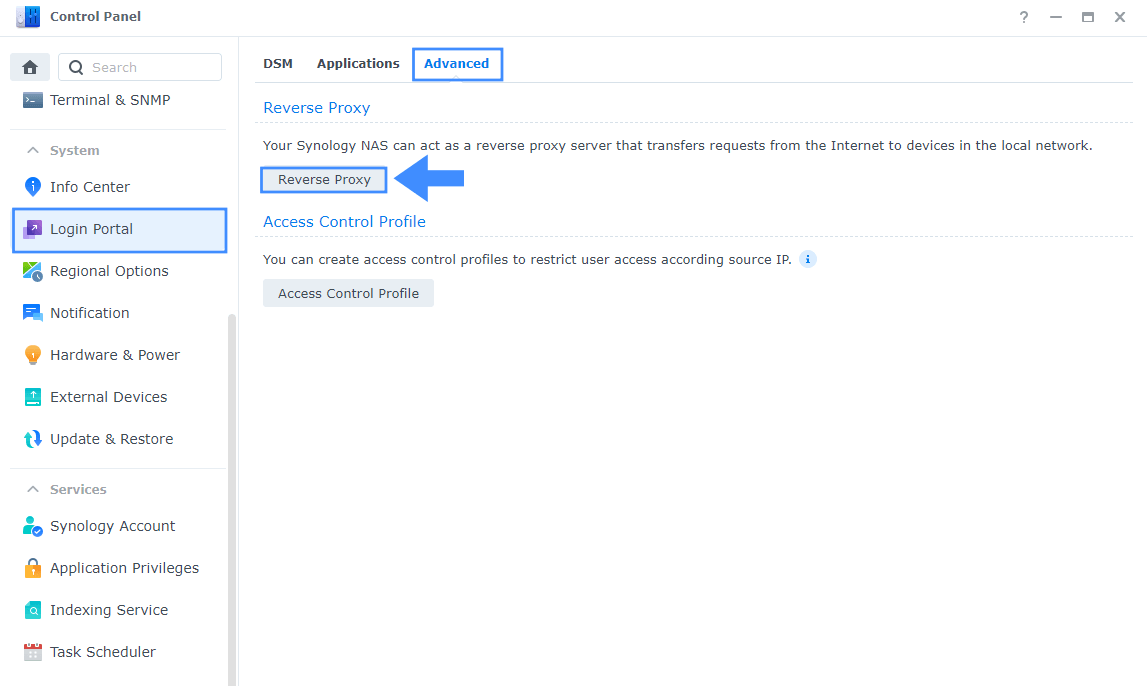
STEP 5
Now click the “Create” button. Follow the instructions in the image below.
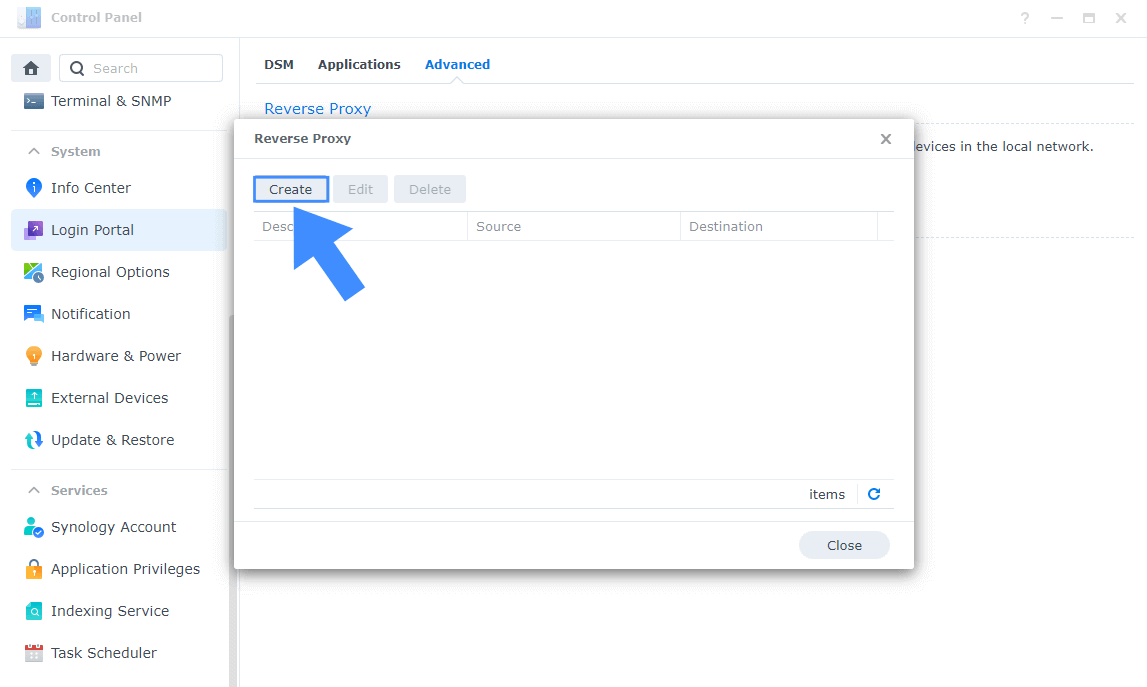
STEP 6
After you click the Create button, the window below will open. Follow the instructions in the image below.
On the General area, set the Reverse Proxy Name description: type in FocalBoard. After that, add the following instructions:
Source:
Protocol: HTTPS
Hostname: focalboard.yourname.synology.me
Port: 443
Check Enable HSTS
Destination:
Protocol: HTTP
Hostname: localhost
Port: 5374
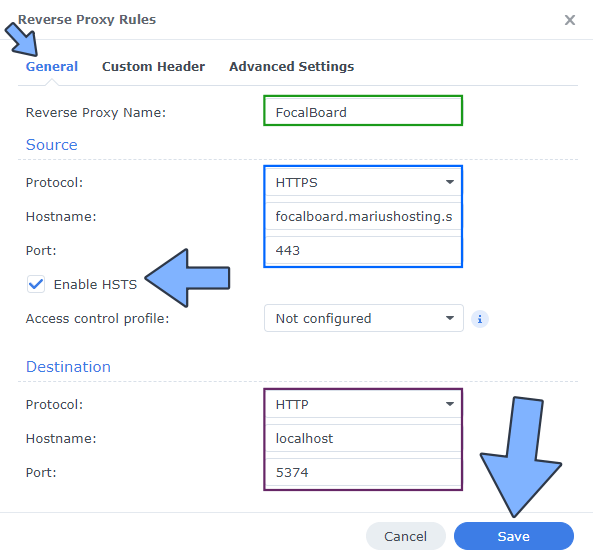
STEP 7
On the Reverse Proxy Rules click the Custom Header tab. Click Create and then, from the drop-down menu, click WebSocket. After you click on WebSocket, two Header Names and two Values will be automatically added. Click Save. Follow the instructions in the image below.

STEP 8
Go to Control Panel / Network / Connectivity tab/ Check Enable HTTP/2 then click Apply. Follow the instructions in the image below.
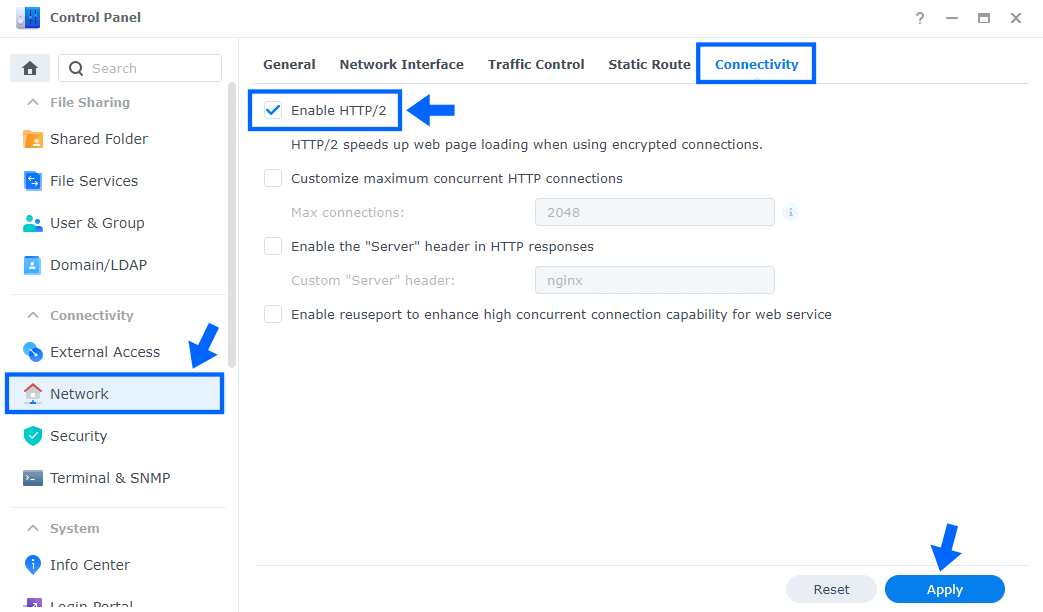
STEP 9
Go to Control Panel / Security / Advanced tab/ Check Enable HTTP Compression then click Apply. Follow the instructions in the image below.
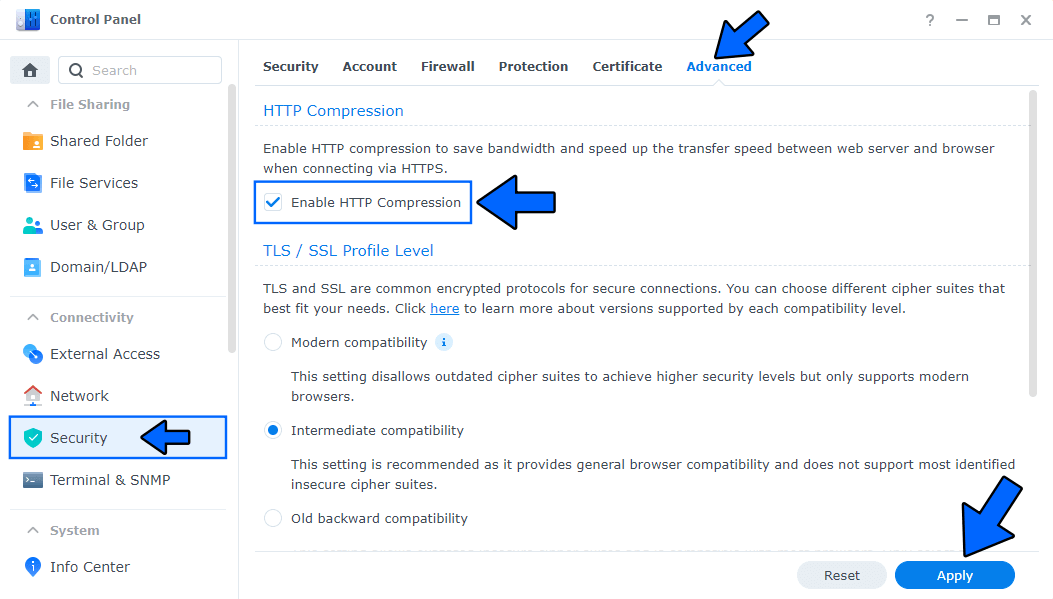
STEP 10
Go to File Station and open the docker folder. Inside the docker folder, create one new folder and name it focalboard. Follow the instructions in the image below.
Note: Be careful to enter only lowercase, not uppercase letters.
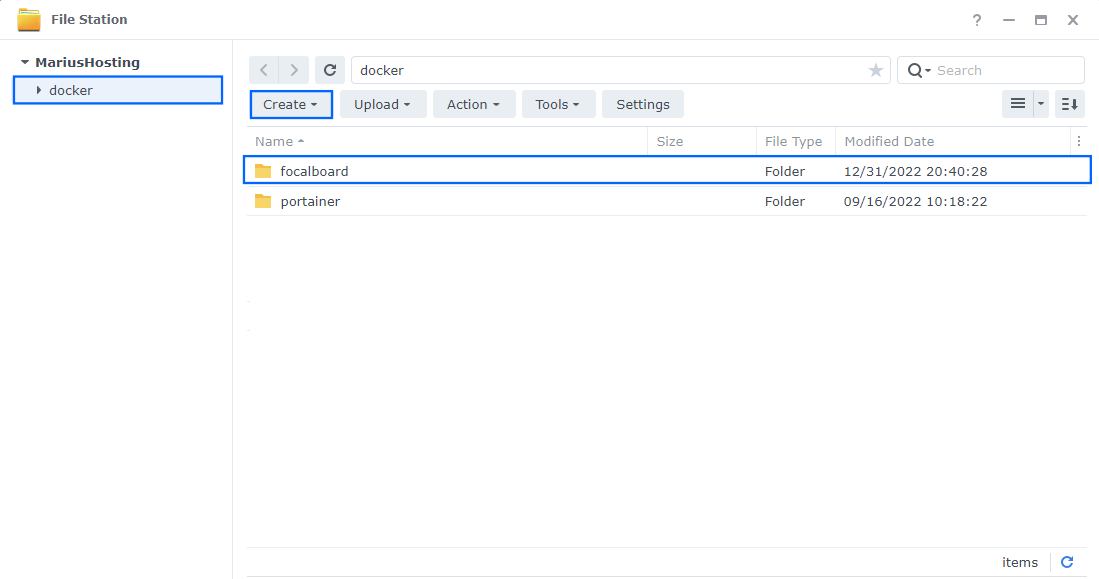
STEP 11
Now create four new folders inside the focalboard folder that you have previously created at STEP 10 and name them cert, config, data, db. Follow the instructions in the image below.
Note: Be careful to enter only lowercase, not uppercase letters.
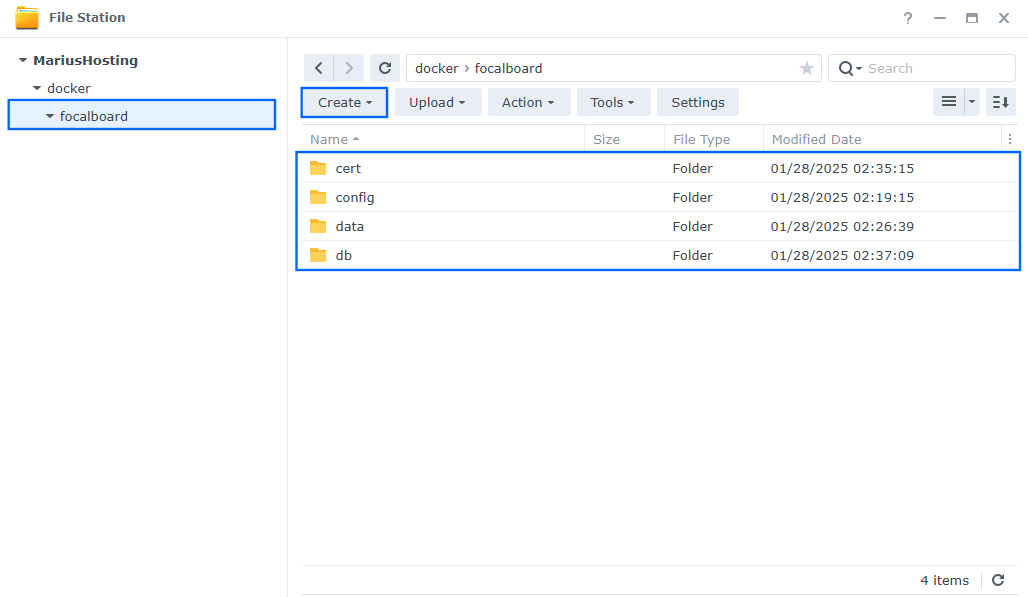
STEP 12
Download (click on the blue link below) then upload the config.json file below in the config folder that you have previously created at STEP 11. Follow the instructions in the image below. 🔒Note: Support my work to unlock the password. You can use this password to download any file on mariushosting forever!
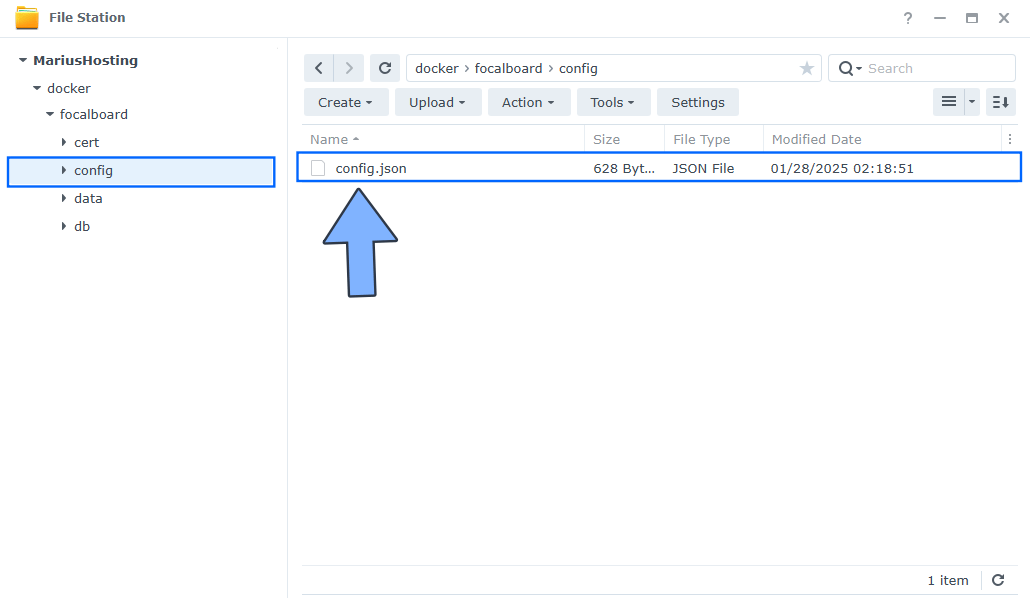
STEP 13
Log into Portainer using your username and password. On the left sidebar in Portainer, click on Home then Live connect. Follow the instructions in the image below.

On the left sidebar in Portainer, click on Stacks then + Add stack. Follow the instructions in the image below.

STEP 14
In the Name field type in focalboard. Follow the instructions in the image below.
services:
db:
image: postgres:17
container_name: Focalboard-DB
hostname: focalboard-db
security_opt:
- no-new-privileges:true
healthcheck:
test: ["CMD", "pg_isready", "-q", "-d", "focalboard", "-U", "focalboarduser"]
timeout: 45s
interval: 10s
retries: 10
volumes:
- /volume1/docker/focalboard/db:/var/lib/postgresql/data:rw
environment:
POSTGRES_DB: focalboard
POSTGRES_USER: focalboarduser
POSTGRES_PASSWORD: focalboardpass
restart: on-failure:5
focalboard:
image: matmatgamer/focalboard
container_name: Focalboard
hostname: focalboard
user: 0:0
security_opt:
- no-new-privileges:true
ports:
- 5374:8000
volumes:
- /volume1/docker/focalboard/data:/opt/focalboard/data:rw
- /volume1/docker/focalboard/config/config.json:/opt/focalboard/config.json
- /volume1/docker/focalboard/cert:/opt/focalboard/cert:rw
environment:
VIRTUAL_HOST: localhost
VIRTUAL_PORT: 8000
VIRTUAL_PROTO: http
restart: on-failure:5
depends_on:
db:
condition: service_healthy
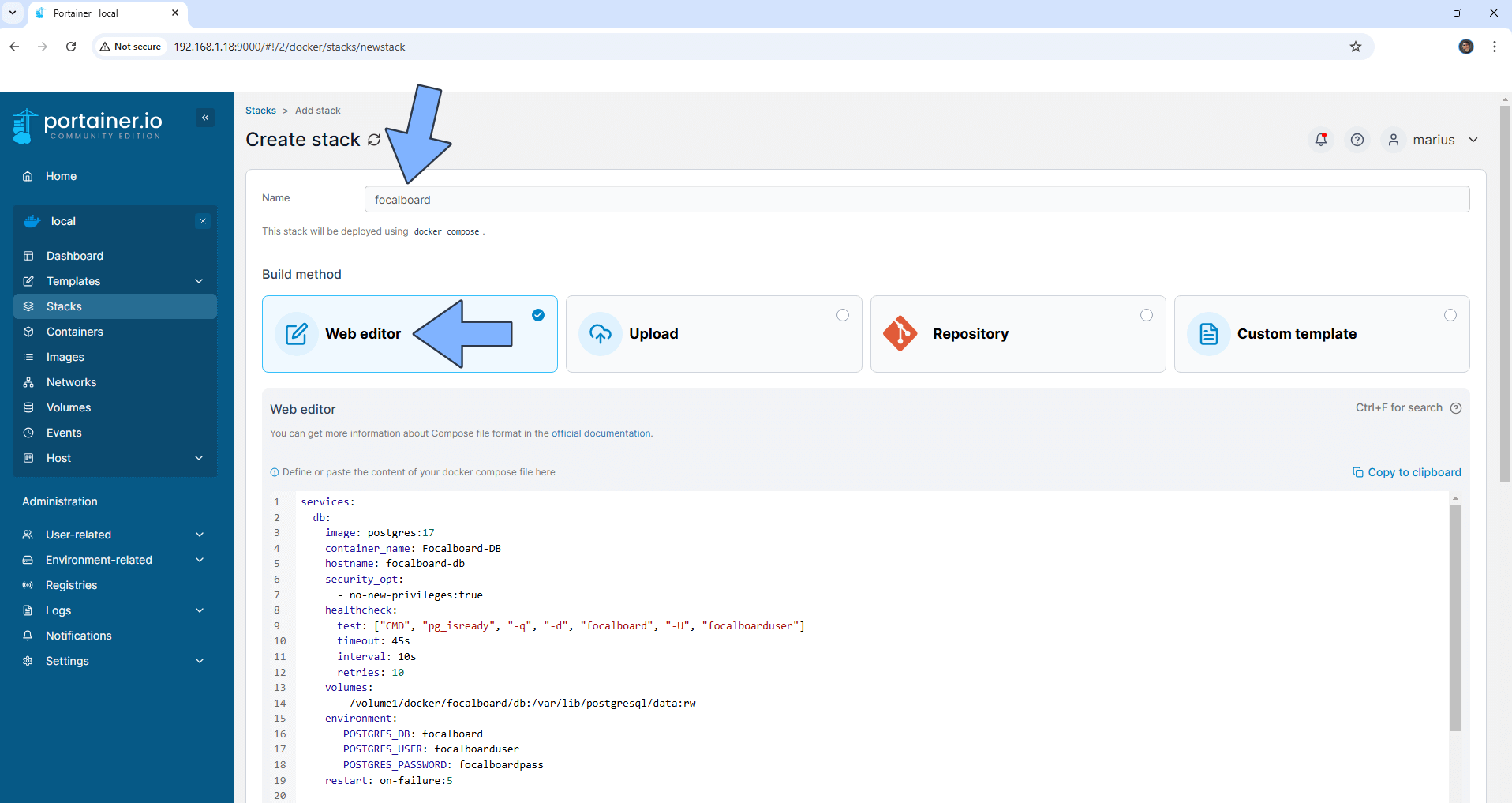
STEP 15
Scroll down on the page until you see a button named Deploy the stack. Click on it. Follow the instructions in the image below. The installation process can take up to a few minutes. It will depend on your Internet speed connection.
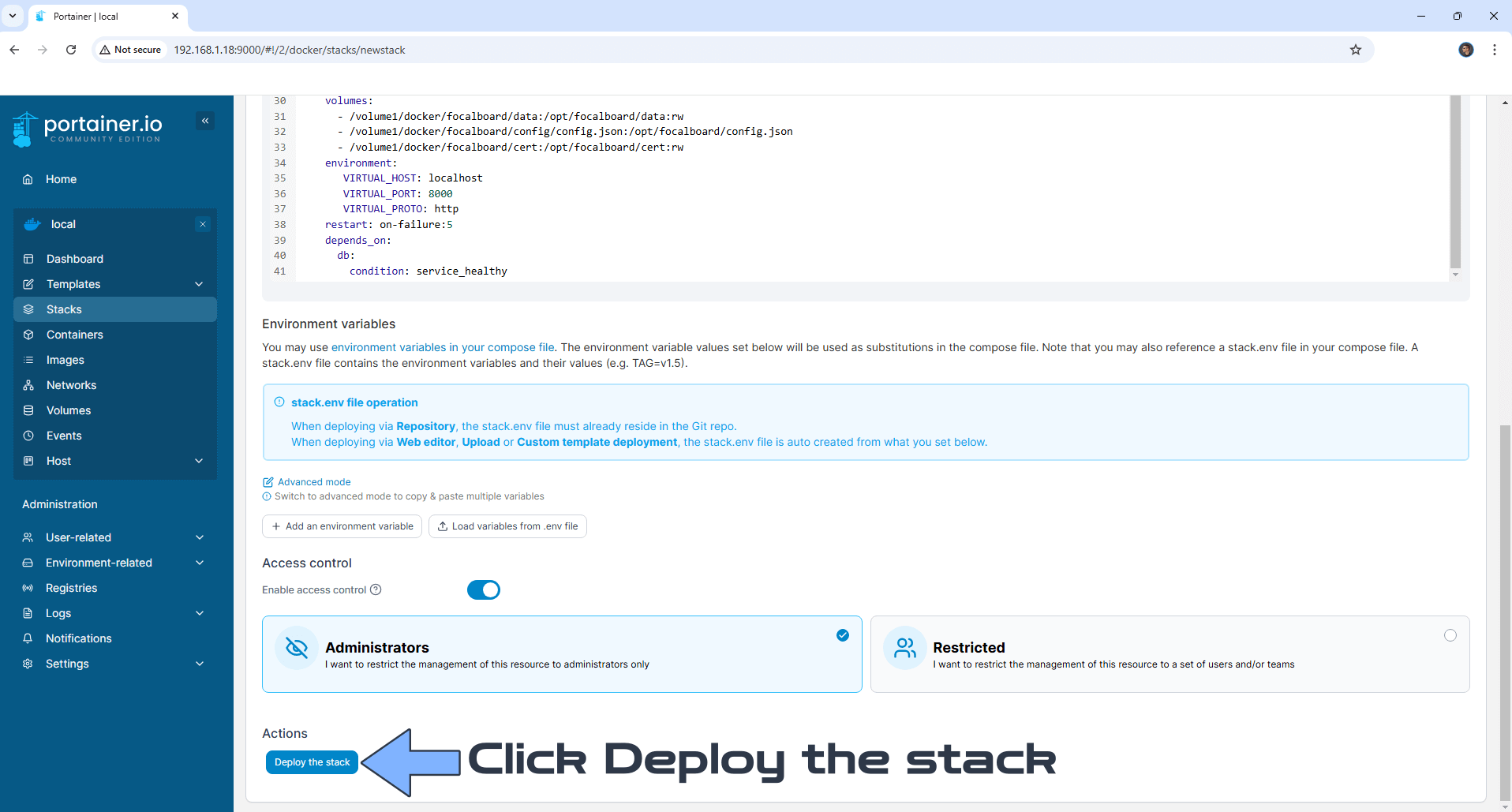
STEP 16
If everything goes right, you will see the following message at the top right of your screen: “Success Stack successfully deployed“.

STEP 17
🟢Please Support My work by Making a Donation. Almost 99,9% of the people that install something using my guides forget to support my work, or just ignore STEP 1. I’ve been very honest about this aspect of my work since the beginning: I don’t run any ADS, I don’t require subscriptions, paid or otherwise, I don’t collect IPs, emails, and I don’t have any referral links from Amazon or other merchants. I also don’t have any POP-UPs or COOKIES. I have repeatedly been told over the years how much I have contributed to the community. It’s something I love doing and have been honest about my passion since the beginning. But I also Need The Community to Support me Back to be able to continue doing this work.
STEP 18
Now open your browser and type in your HTTPS/SSL certificate like this https://focalboard.yourname.synology.me In my case it’s https://focalboard.mariushosting.synology.me If everything goes right, you will see the Focalboard login page. Click “or create an account if you don’t have one“. Follow the instructions in the image below.
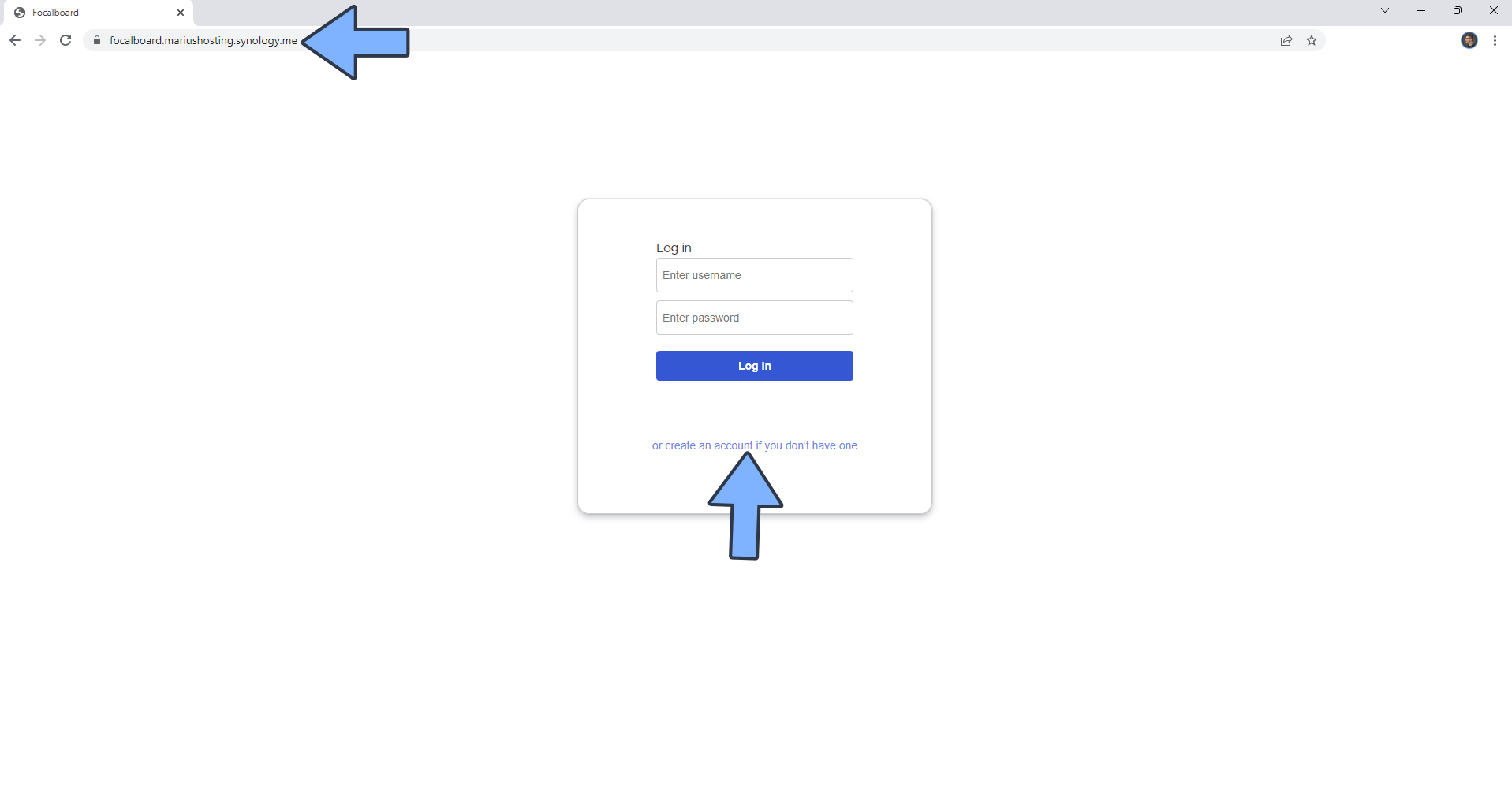
STEP 19
Create an account. Type in your own email, username and password then click Register. Follow the instructions in the image below.
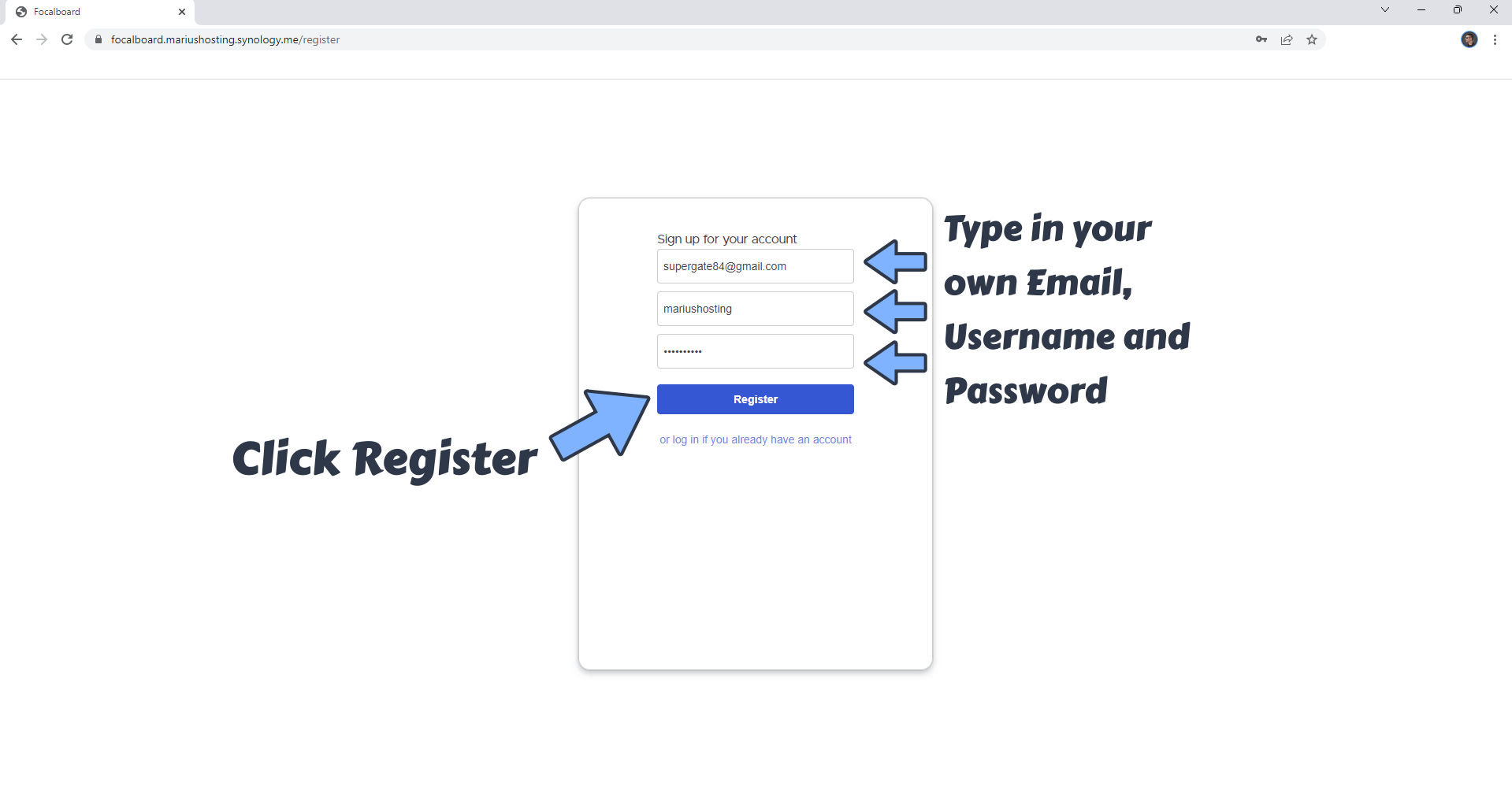
STEP 20
Start your first empty board or use the standard template. Follow the instructions in the image below.
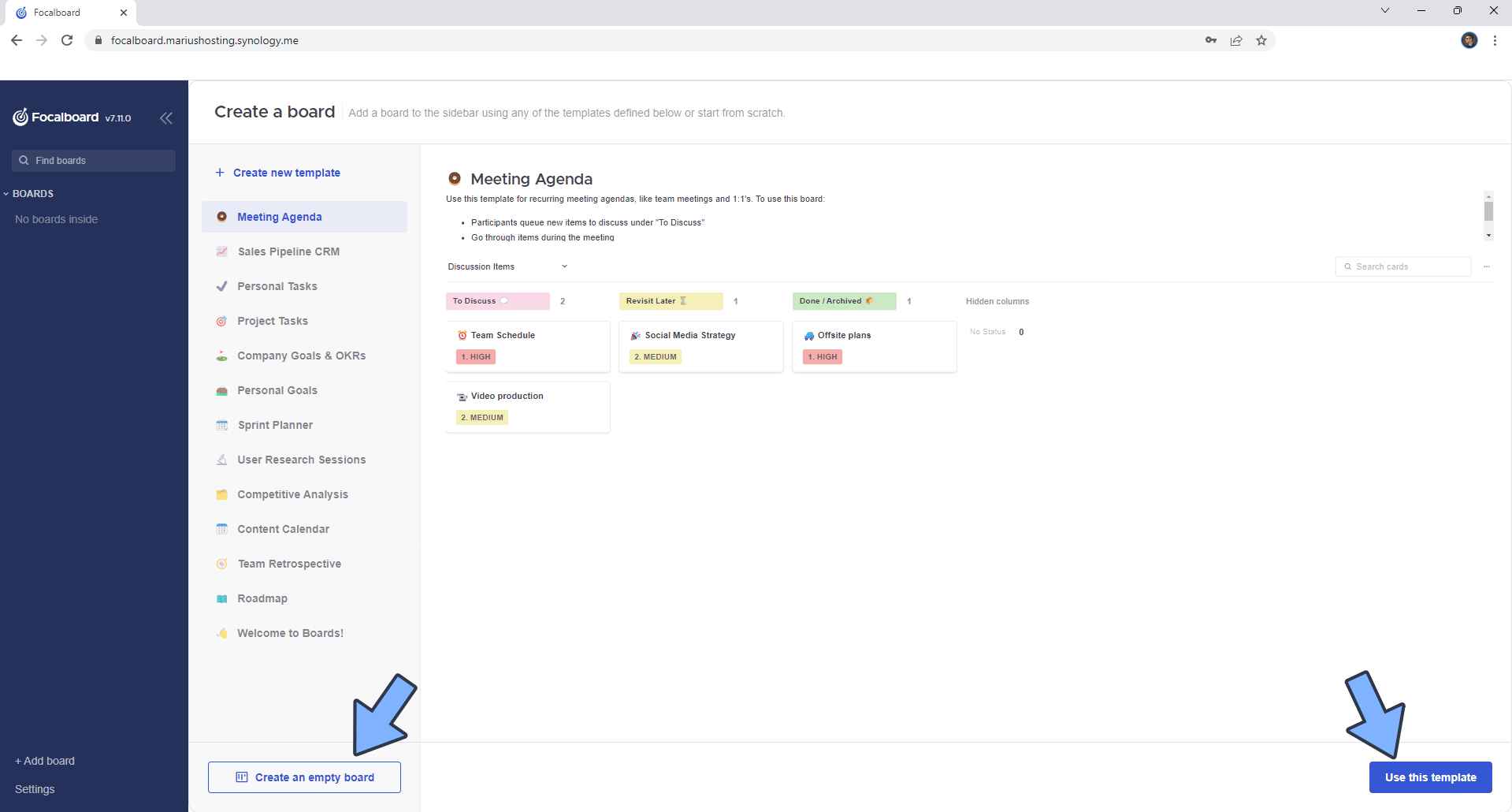
STEP 21
New users can’t register to your Focalboard instance if they are not invited. To create a valid invitation link, click on the Focalboard logo on the left sidebar, then Invite users.
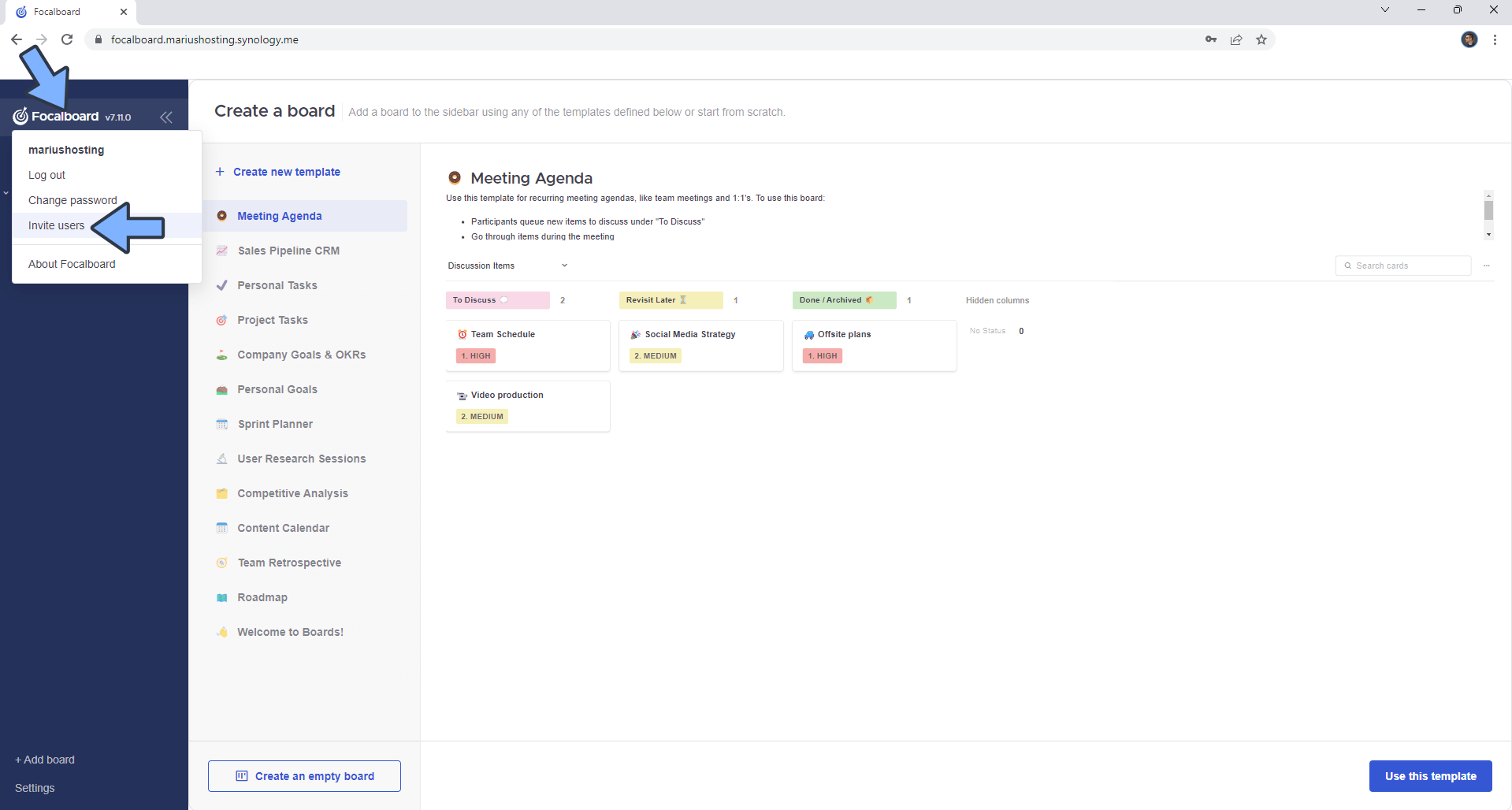
STEP 22
Copy the invitation link then send it to your friends/team so they can register an account and use Focalboard. Note: Remember that, without an invitation link, new users are not able to register to your Focalboard instance as they will get an error message that says the invitation link is not correct.
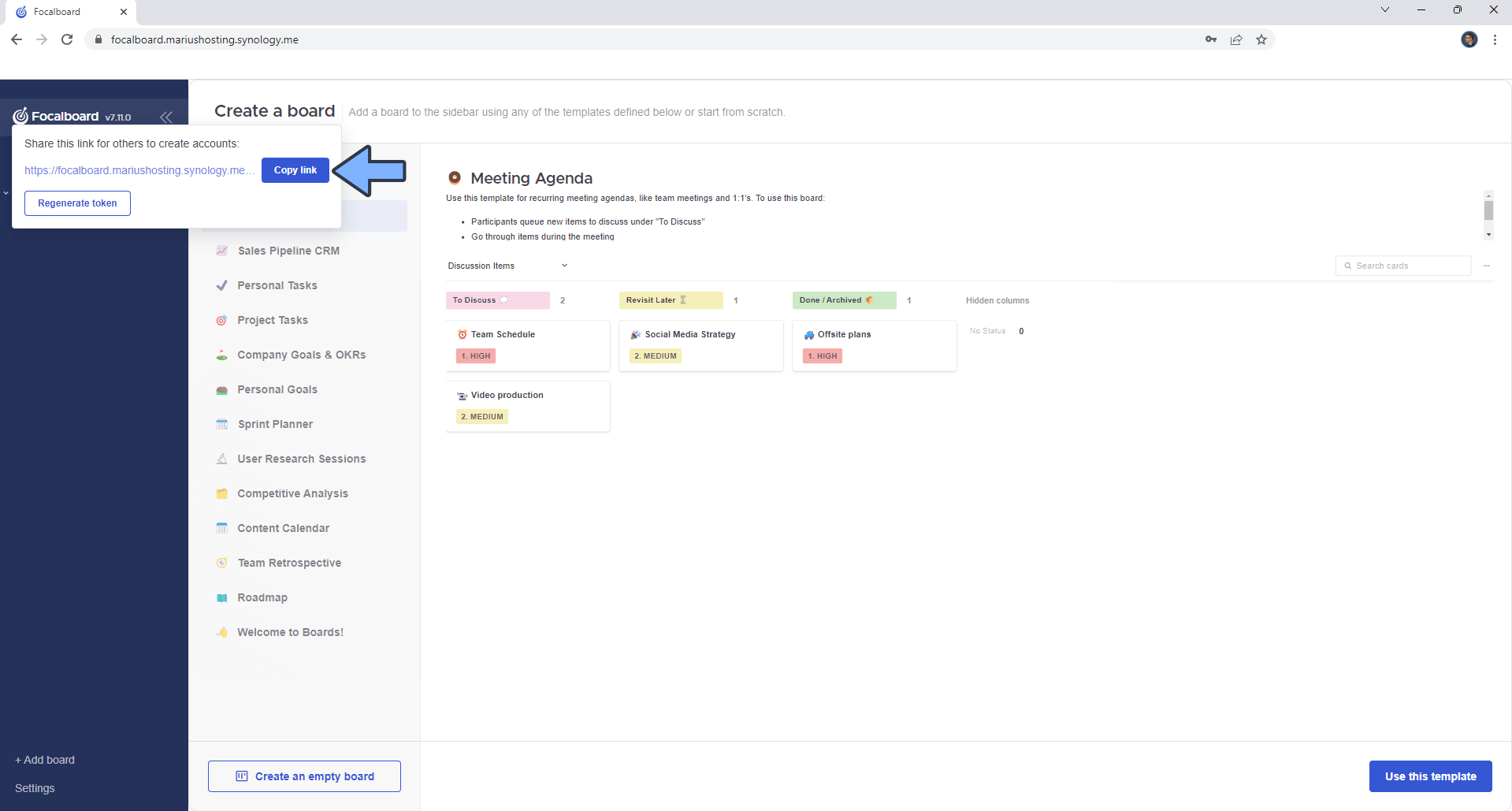
You can activate the Dark theme option and you can also change the language in Focalboard. Everything is simple and easy to follow. Follow the instructions in the image below.

Enjoy Focalboard!
If you encounter issues by using this container, make sure to check out the Common Docker issues article.
Note: Can I run Docker on my Synology NAS? See the supported models.
Note: How to Back Up Docker Containers on your Synology NAS.
Note: Find out how to update the Focalboard container with the latest image.
Note: How to Free Disk Space on Your NAS if You Run Docker.
Note: How to Schedule Start & Stop For Docker Containers.
Note: How to Activate Email Notifications.
Note: How to Add Access Control Profile on Your NAS.
Note: How to Change Docker Containers Restart Policy.
Note: How to Use Docker Containers With VPN.
Note: Convert Docker Run Into Docker Compose.
Note: How to Clean Docker.
Note: How to Clean Docker Automatically.
Note: Best Practices When Using Docker and DDNS.
Note: Some Docker Containers Need WebSocket.
Note: Find out the Best NAS Models For Docker.
Note: Activate Gmail SMTP For Docker Containers.
This post was updated on Friday / August 22nd, 2025 at 1:38 AM
